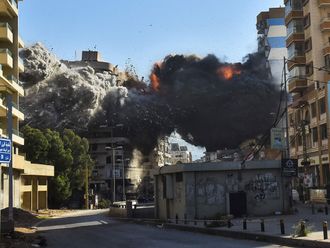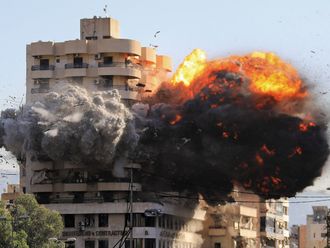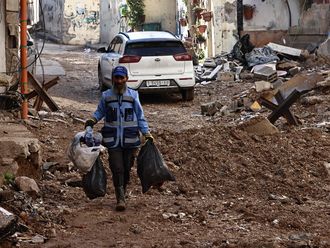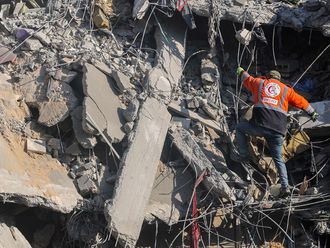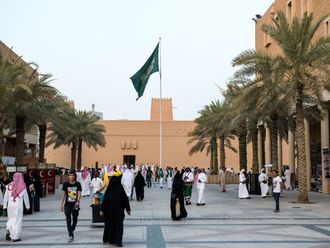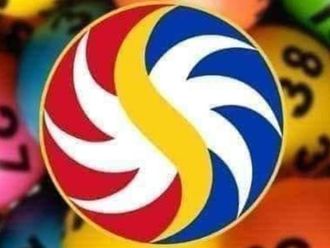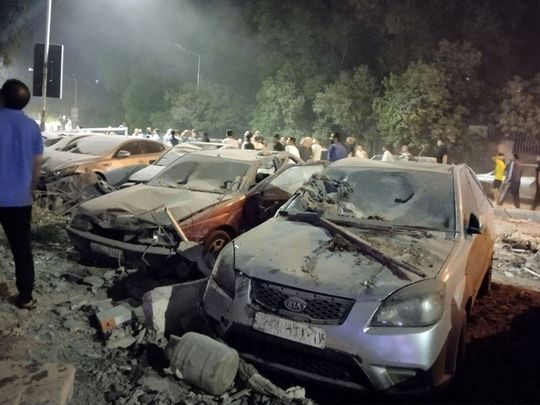
BEIRUT: Israeli emergency responders said two people were killed on Wednesday in a rocket attack on the northern city of Kiryat Shmona, as the army and Lebanon's Hezbollah exchanged fire along the border.
"We found a man and a woman aged around 40 years old, unconscious and injured by shrapnel. We carried out medical examinations, but their injuries were serious and we had to declare them dead on the spot," said emergency service provider Magen David Adom in a statement.
Earlier Hezbollah said it fired projectiles into Israel and foiled ground incursions, a day after Israeli Prime Minister Benjamin Netanyahu warned Lebanon could face destruction like Gaza.
Netanyahu is set to speak with US President Joe Biden on Wednesday about Israel’s response to last week’s missile attack by Iran, Hezbollah’s main backer, US news outlet Axios reported, citing US officials.
Hezbollah said it repelled two Israeli attempts to breach border areas, using rocket-propelled weapons and engaging in ground combat with Israeli soldiers.
Israel said its air defences intercepted two projectiles fired from Lebanon, setting off sirens around Caesarea, south of Haifa.
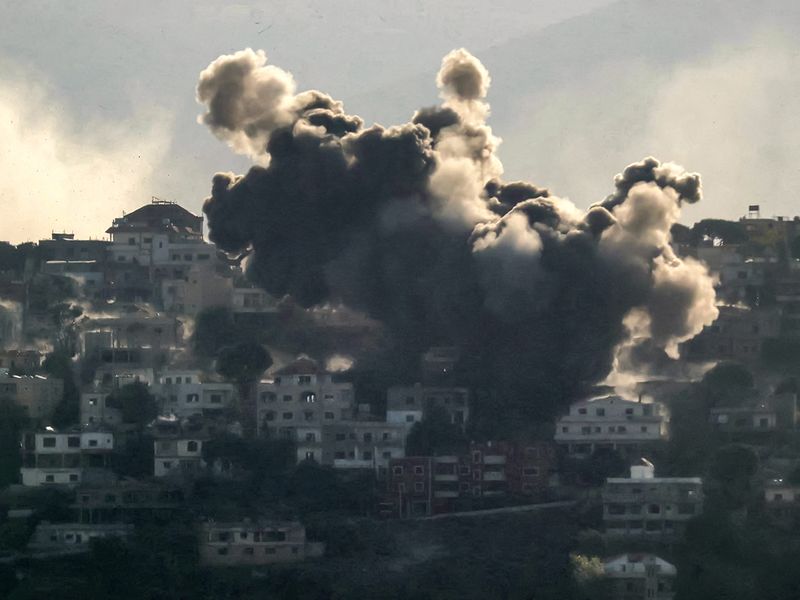
On Tuesday, the military said Hezbollah had fired 180 projectiles at Israel, mainly around Haifa, as Israel escalated its ground offensive along Lebanon’s southern coast.
Netanyahu’s stark warning came a year and a day after the start of Israel’s war against Hezbollah ally Hamas in Gaza.
“You have an opportunity to save Lebanon before it falls into the abyss of a long war that will lead to destruction and suffering like we see in Gaza,” he said in a video address.
“I say to you, the people of Lebanon: Free your country from Hezbollah so that this war can end.”
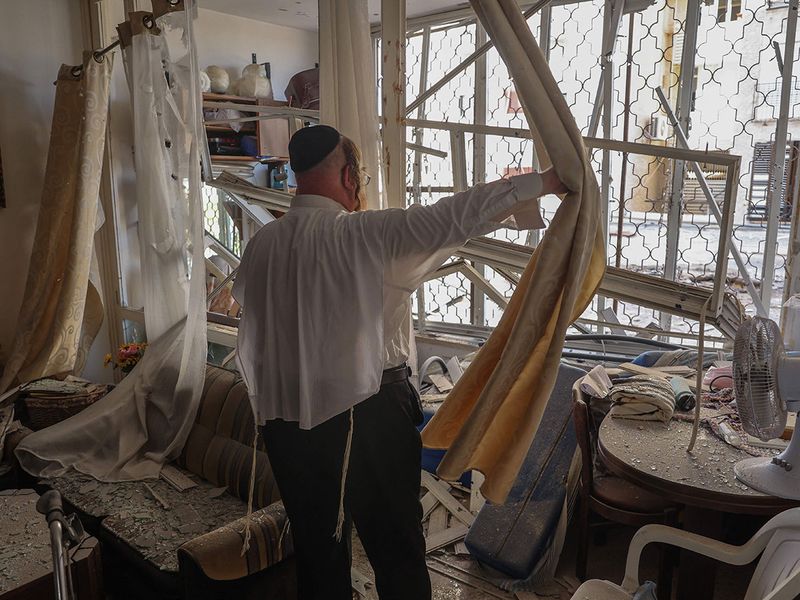
As Israel battles Hamas in Gaza, it also aims to secure its northern border to allow tens of thousands of Israelis displaced by the cross-border fire to return home.
Both Hamas and Hezbollah have vowed to keep up their attacks, with Hezbollah’s deputy leader Naim Qassem on Tuesday saying the group would make it impossible for Israelis to return to the north.
Israel has intensified strikes on Hezbollah strongholds in Lebanon since September 23, leaving more than 1,150 people dead and forcing more than a million to flee.
Most of its strikes have targeted southern and eastern Lebanon, as well as south Beirut.
Evacuation warning
Israel’s military said Tuesday it was broadening its offensive.
On its Telegram channel, the military said its 146th Division began “limited, localised, targeted operational activities” against Hezbollah in Lebanon’s southwest.
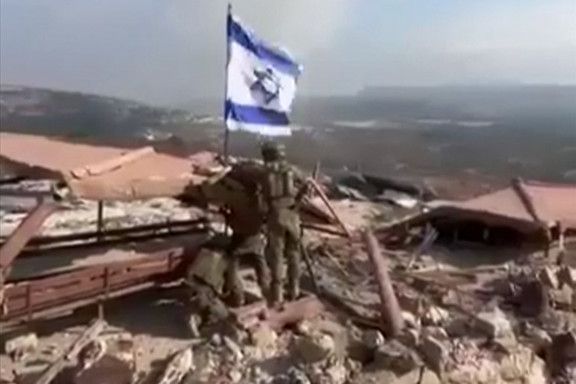
A day earlier, it had warned people to stay away from the southern part of Lebanon’s Mediterranean coast, with a spokesman saying Israel would “soon operate in the maritime area against Hezbollah’s terrorist activities” south of the Awali river.
In Sidon, fishermen stayed ashore and the seafood market was unusually quiet.
“If we don’t go out to sea, we won’t be able to feed ourselves,” said one of them, Issam Haboush.
The Israeli military on Tuesday said it hit Hezbollah’s south Beirut bastion, where a strike last month killed the militant group’s leader Hassan Nasrallah.
It later said it dismantled a Hezbollah tunnel leading from Lebanon into Israel.
Hezbollah said it repelled Israeli troops who “infiltrated from behind” a UN peacekeepers’ position in the southern border village of Labboune.
Hezbollah defiant
Hezbollah’s deputy leader said that despite Israel’s “painful” strikes, the group’s leadership was in order and its military capabilities were “fine”.
Israeli Defence Minister Yoav Gallant said Hezbollah was “ a battered and broken organisation, without significant command and fire capabilities, with a disintegrated leadership following the elimination of Hassan Nasrallah”.
Gallant had been due to visit Washington for talks on Wednesday that were expected to focus on Israel’s response to Iran’s missile attack last week.
But the Pentagon confirmed the visit had been postponed, after Israeli media reported Netanyahu had demanded that the cabinet decide on the action to be taken before Gallant’s departure.
Tuesday’s increased fighting came a day after Israelis and people around the world marked the first anniversary of Hamas’s October 7 attack on Israel.
For families of the bereaved and relatives of 251 people taken hostage into Gaza, the pain was especially acute.
Of the total number, 97 hostages are still being held, including 34 the Israeli military says are dead.
Hamas’s October 7 attack resulted in the deaths of 1,206 people, mostly civilians, according to an AFP tally based on Israeli official figures, which include hostages killed in captivity.
Israel’s retaliatory military offensive has killed 41,965 people in Gaza, most of them civilians, according to figures from the Hamas-run territory’s health ministry that the United Nations has described as reliable.
‘Nightmares’
The conflict has since spread across the wider region, with Israel battling Iran-backed groups in Lebanon, Yemen and Syria.
The Syrian government said seven civilians were killed in an Israeli air strike in Damascus Tuesday, that a war monitor said targeted a building used by Iran’s Revolutionary Guards and Hezbollah.
Electrician Adel Habib, 61, who lives in the building, said he was on his way home when the strike hit.
“These were the longest five minutes of my life until I heard the voices of my wife, children and grandchildren.”
A year after Israel’s military offensive began in Gaza, swathes of the territory have been reduced to rubble, and nearly all its 2.4 million residents have been displaced at least once.
Philippe Lazzarini, head of the UN agency for Palestinian refugees, UNRWA, posted on X Wednesday that there was “no end to hell” in northern Gaza.
He criticised Israeli evacuation orders ahead of pending military operations, saying: “Many are refusing because they know too well that no place anywhere in Gaza is safe.”
The International Committee of the Red Cross said that after a year of war, civilians in Gaza were still living in ramshackle shelters and struggling to find food.
On Tuesday, the territory’s civil defence agency said an Israeli strike on a refugee camp in central Gaza killed at least 17 people.


